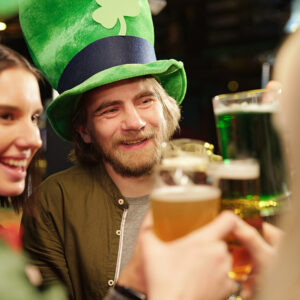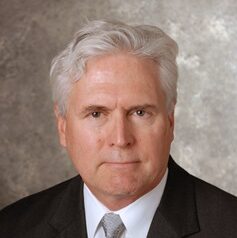Planning a St. Patrick’s Day party? Why not whip up some corned beef and cabbage tacos? Seriously. They’re not bad.
Of course, if you want to stick with the traditional sides, that’s fine too. You can’t go wrong with a buttery colcannon dish and a pint of Guinness. Either way, though, let me tell you how a plate of corned beef tacos helped me better understand that country’s special place in the world.
My tacos were served a few weeks ago in a charming country house in rural County Donegal — a spectacularly beautiful place in the far northern part of the Republic of Ireland. (If you’re planning a vacation, Google “Wild Atlantic Way.” But be forewarned, the views will make you want to extend your trip.) My hosts were an American family who moved to Ireland more than two years ago to work for a big American corporation.
As far as I can tell — and I’ve known them for a very long time and visit often — they love the place. But one of them was born in Texas. She knows that if you can’t make something into a taco, it probably isn’t worth eating. Hence our dinner.
Now in truth, corned beef tacos are still a rarity in Ireland. Americans working for U.S. corporations are not. There are almost 1,000 U.S. companies that have significant operations in Ireland. Directly and indirectly, they employ more than 360,000 people, many of whom are Americans working abroad but most of whom are Irish. American firms in Ireland generate 15 percent of all Irish jobs.
It wasn’t always like this. Many Americans think of Ireland in vaguely romantic terms — the ancient land of our ancestors, home to myth and legend, that sort of thing. And it is true that about one-in-four Americans can trace significant ancestry to Ireland. But we need to understand an important distinction: Ireland is an old culture, but the Republic of Ireland is a young country — an independent state for more than 100 years.
For the first 40 years or so after independence, Ireland turned inward. It discouraged foreign entanglements, tried to wall itself off economically from the world, and sought a kind of Irish self-sufficiency. After centuries of colonial rule and bitter, bloody civil war, it’s easy to see why the newly independent republic would set out in that direction.
But it was a bad plan.
By the 1950s, Ireland was nearly the poorest place in Europe. With grim prospects at home, anyone who could get out got out. Between 1945 and 1960, about 500,000 Irish emigrated, many of them to the United States. The population of Ireland in 1961 was smaller than it had been after 1861, 15 years after the great potato famine.
In some poor places, it’s easy for the leaders to see what needs to change but impossible for them to change. Ireland was bold. Instead of looking inward, it embraced the global economy. It slashed corporate taxes to encourage investment. But it didn’t just want foreign money; it wanted foreign partnerships. It wanted actual companies to come to Ireland and do real things. That meant it couldn’t just promise low taxes and light regulation, it had to invest in infrastructure and education. Ireland is now ranked No. 5 in the world for higher education.
So, how’s all that working out? Pretty good. Ireland hasn’t yet become the Singapore of the North Atlantic, but it is no longer the poor man of Europe. By some measures, Ireland is nearly the wealthiest country in Europe. Other metrics put it at the bottom of the top third.
But more than the current ranking, there’s optimism for the future. If you work hard to educate young people in valuable high-tech skills, you attract a bunch of foreign tech firms — Apple, Google, Microsoft and Meta are the four largest multinationals in Ireland. Not surprisingly, when many smart Irish kids go to work for these companies, a few start dreaming about starting their own companies. What’s called “Silicon Docks” — the area in the old Docklands part of Dublin — may not rival Silicon Valley in size, but it does in spirit.
There’s more to say, but let me end by returning to that dinner in Donegal. My hosts know tacos. They could have served chorizo or al pastor, but they gave me corned beef. They offered me Irish tacos. And just like that dinner, Ireland is embracing the world but in an Irish way. I think St. Patrick would approve.


